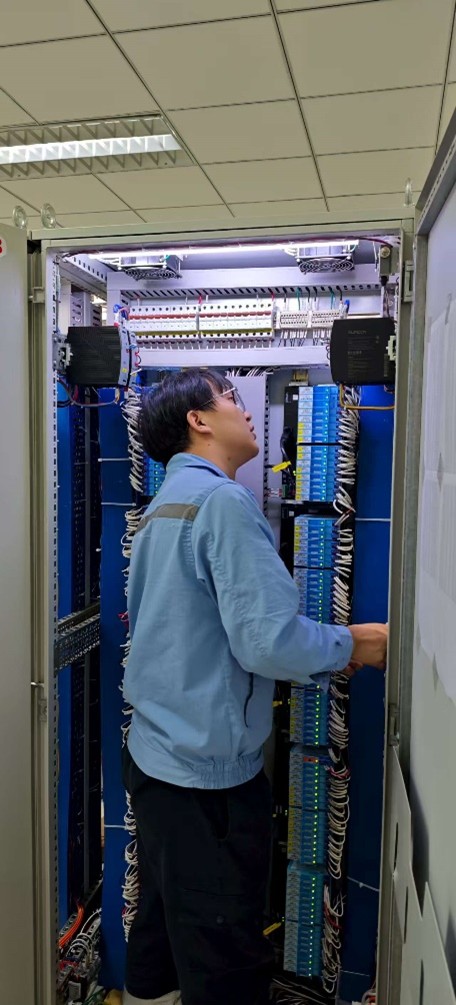


Views: 0 Author: Site Editor Publish Time: 2025-09-24 Origin: Site











Recently, a major success was announced at a petrochemical industrial park in China: the DCS system upgrade and renovation project for three core units—1# Catalytic Cracking, 2# Hydro treating, and Delayed Coking—was successfully delivered during the overhaul period and started up successfully on the first attempt! The project successfully replaced the original Yokogawa and Emerson international brand systems with SUPCON's independently developed OMC system. Despite an extremely tight schedule, the challenges of migrating and integrating multiple systems were overcome, making this a benchmark project for the localization of process industrial control systems. The customer highly praised the achievement: "SUPCON Technology has truly made industry smarter and the DCS system more efficient for production operations and unified scheduling!"
As the "profit engine" of oil refining, this unit uses catalysts to crack heavy oil into high-value light oil products. The OMC system, with its millisecond-level real-time response capability, enables precise control of key parameters such as the temperature of the reaction-regeneration system and catalyst circulation rate, improving unit operation efficiency by 10%.
In the petrochemical industry, hydro treating units are core production facilities, and their operational stability, economic efficiency, and flexibility critically impact a company's production benefits and market competitiveness. The original system's method of regulating gas feed suffered from low precision, high energy consumption, and significant equipment wear, making it difficult to meet the demands of modern refineries for fine chemical production and energy savings. Through joint optimization by engineers, process technicians, and safety instrument system managers, the advanced control module reduced hydrogen consumption by 5%, building an intelligent foundation for China's production of clean oil products.
The delayed coking unit is a critical process facility for converting heavy oil into light oil and petroleum coke. Its main process steps include raw material preprocessing, heating, coking reaction, fractionating, and hydraulic decoking, making it essential for deep conversion of heavy oil. After the OMC upgrade, the intelligent heating furnace control system optimized the coking cycle of the coke drums, improving efficiency in processing high-carbon residue raw material, yield of light oil, and decarburization efficiency by approximately 7.2%.
This renovation required the migration of systems across three major units with ten thousands of I/O points within a 45-day overhaul window, a task once deemed "mission impossible." The SUPCON engineering team embodied the core values of "customer first, self-discipline, and integrity" in their round-the-clock efforts:
The project team worked tirelessly on-site, with signal testing lights still flickering in the control room in the early hours of the morning. To overcome the challenges of migrating control strategies from heterogeneous systems, engineers stayed on-site day and night, ensuring 100% accuracy in configuration.
Faced with the complex interlock logic of the catalytic unit, the team conducted multiple verifications of over 400 control loops, adhering to the belief of "pursuing excellence" and ultimately achieved a successful startup of all three units on the first attempt.
The unified OMC operating platform improved operational efficiency by 15% and reduced maintenance costs by 10%. The customer's instrumentation team leader remarked: "SUPCON not only completed the system replacement but also brought convenience and efficiency to daily operations and maintenance, adding features like multi-project remote switching and management for the engineering station in the control center!"
A 20-person "joint Campaign team" was formed in collaboration with the user's process control group, sharing a process knowledge database and laying the foundation for future smart factory construction, reflecting the ethos of "co-creating the future".
Seven engineers on the project team held OMC product certifications, delivering with zero deviations and earning a customer thank-you banner that read: "Chinese systems can achieve world-class reliability!"
Throughout the 45-day renovation period, engineers remained on the front line every day: "We must ensure a flawless startup of the renovated units!" This exemplifies the SUPCON spirit of "self-discipline and integrity."
The successful implementation of this core unit renovation project in the petrochemical industrial park is not only a technological victory but also a triumph of SUPCON's cultural DNA. The control screens in the operation center now display new production curves, marking a critical step in the localization of process industrial control systems in China. SUPCON will continue to adhere to the principles of "customer first, cooperative innovation, self-discipline and integrity, and self-driven action", empowering more enterprises to realize a smarter future where customers achieve greater success.
